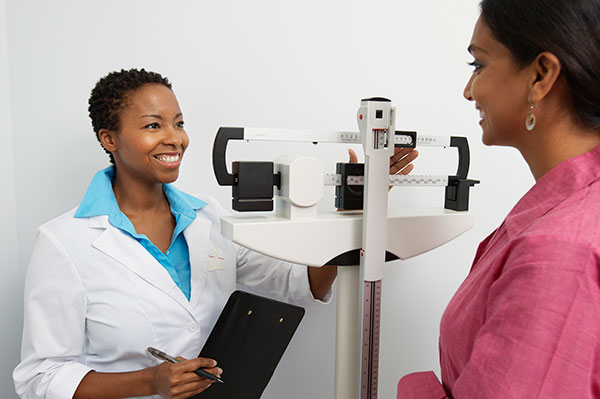Game Plan for Preventing Type 2 Diabetes
Since 2001, the National Institutes of Health (NIH)–sponsored Diabetes Prevention Program (DPP) and subsequent other strong research studies have shown that intensive lifestyle interventions and select medications are cost-effective in preventing or delaying type 2 diabetes in adults with prediabetes.
Given the extraordinary burden of diabetes on patients, their families, the medical community, society, and the economy, the NIDDK has prepared this toolkit to provide health professionals and teams with evidence and resources to identify, counsel, and support patients to prevent or delay the onset of type 2 diabetes.
Your Game Plan to Prevent Type 2 Diabetes: Information for Patients
This information is based on the Diabetes Prevention Program (DPP) research study and gives people steps such as eating less and moving more to lose weight.
Reimbursement & Coding for Prediabetes Screening
Medicare recommends and provides coverage for diabetes screening tests through Part B Preventive Services for beneficiaries at risk for diabetes or those diagnosed with prediabetes.
Evidence Supporting Prevention
Preventing or delaying type 2 diabetes leads to beneficial outcomes for patients and the economy.
The National Diabetes Education Program (NDEP) was retired in 2019 after more than 20 years of collaborative partnership between the National Institute of Diabetes and Digestive and Kidney Diseases (NIDDK) and the Centers for Disease Control and Prevention (CDC), plus a network of more than 200 individuals and organizations. NDEP was successful in coalescing the diabetes community at the national level and raising awareness about diabetes prevention and management. Going forward, NIDDK will continue to advance science-based information and resources on diabetes.
This content is provided as a service of the National Institute of Diabetes and Digestive and Kidney Diseases (NIDDK), part of the National Institutes of Health. The NIDDK translates and disseminates research findings to increase knowledge and understanding about health and disease among patients, health professionals, and the public. Content produced by the NIDDK is carefully reviewed by NIDDK scientists and other experts.
This information is not copyrighted. The NIDDK encourages people to share this content freely.




